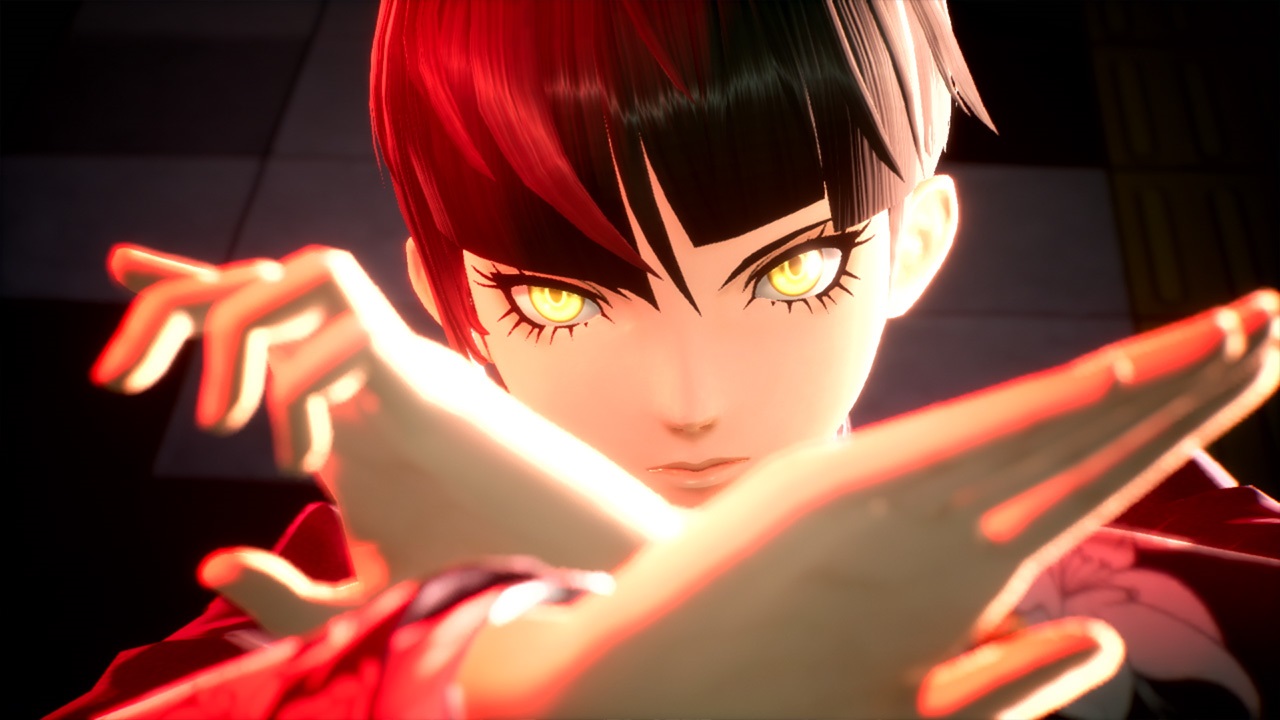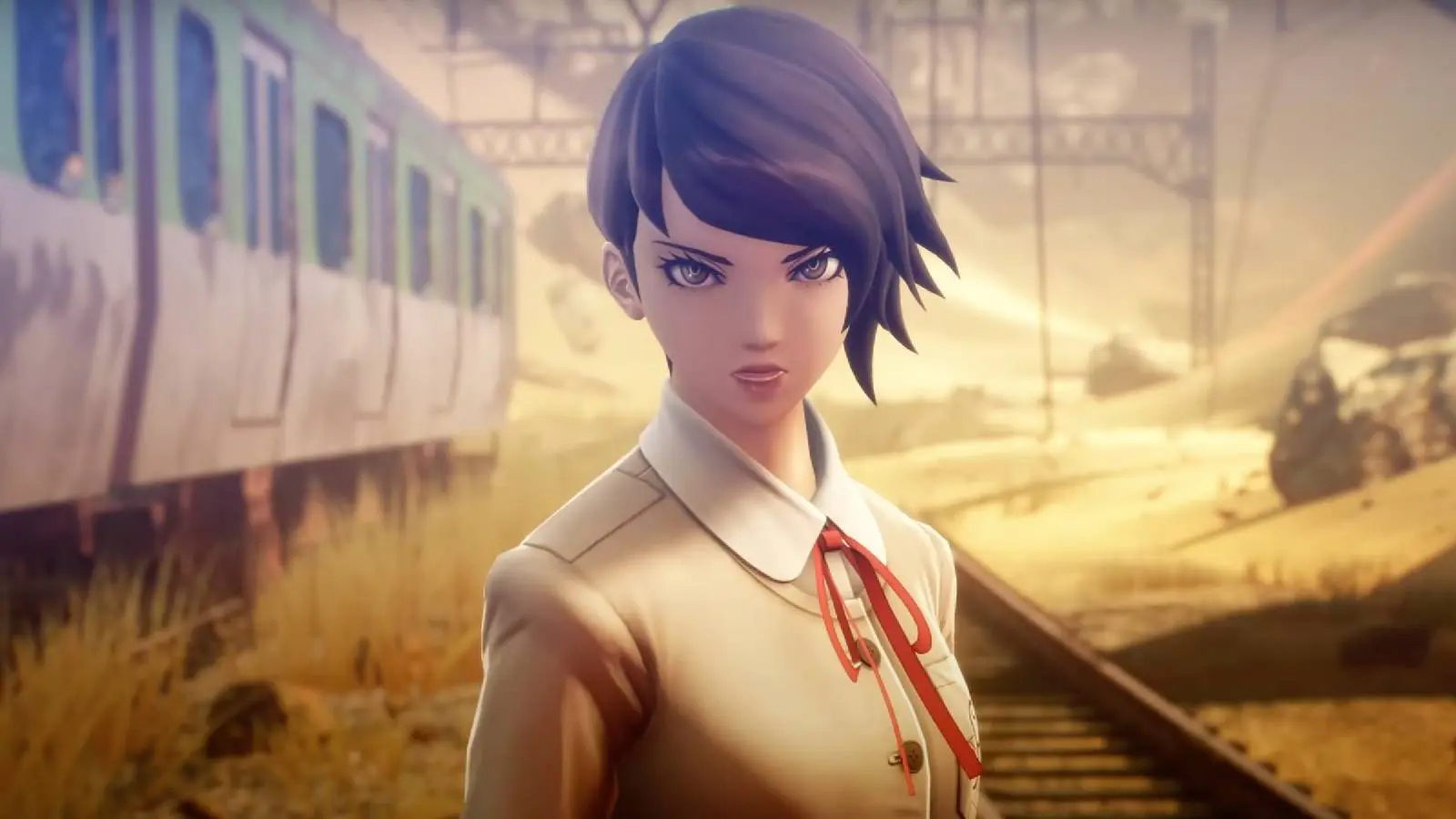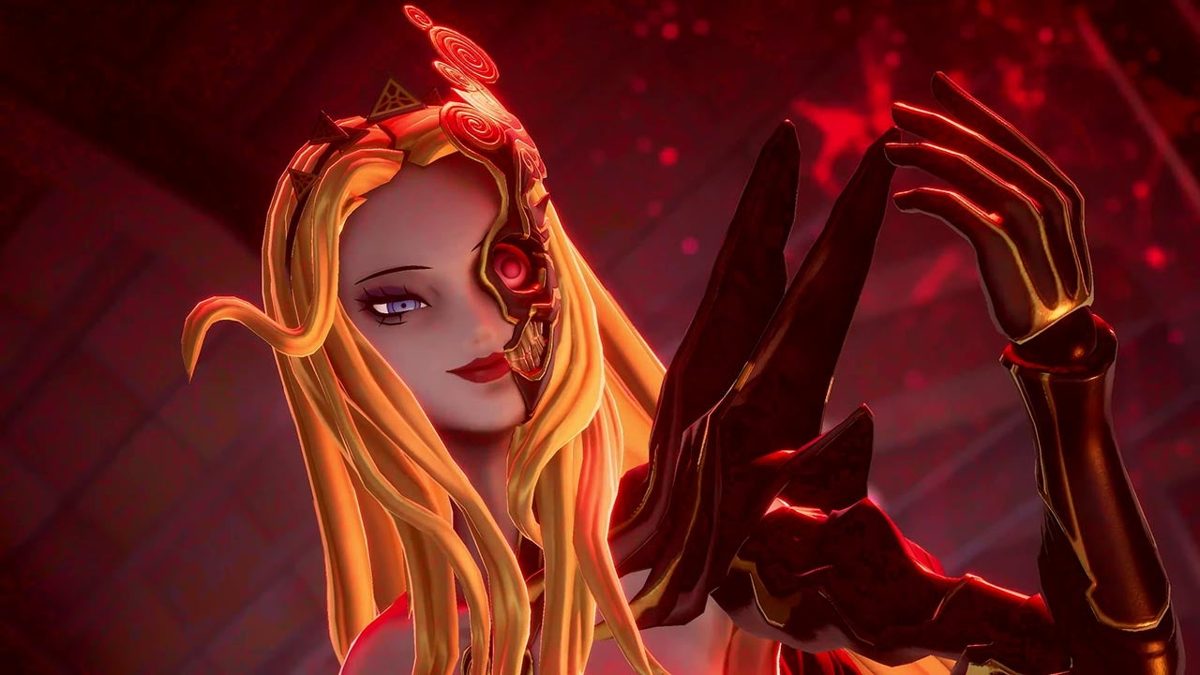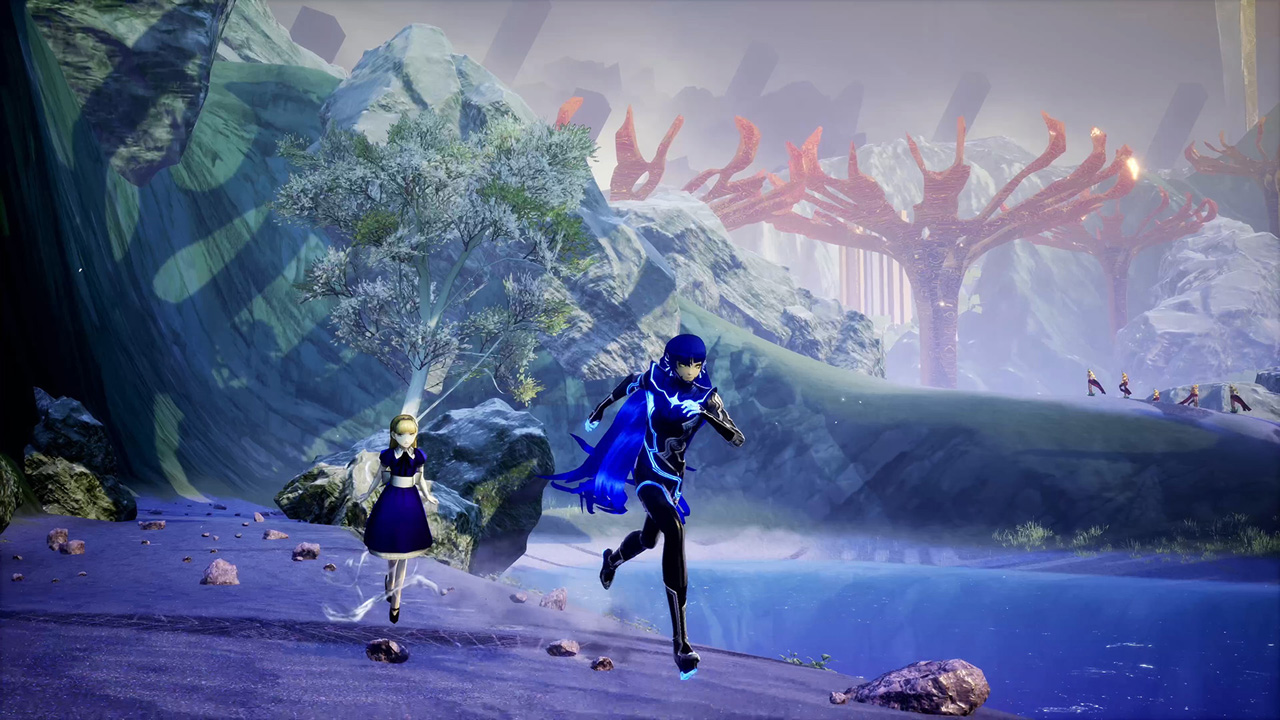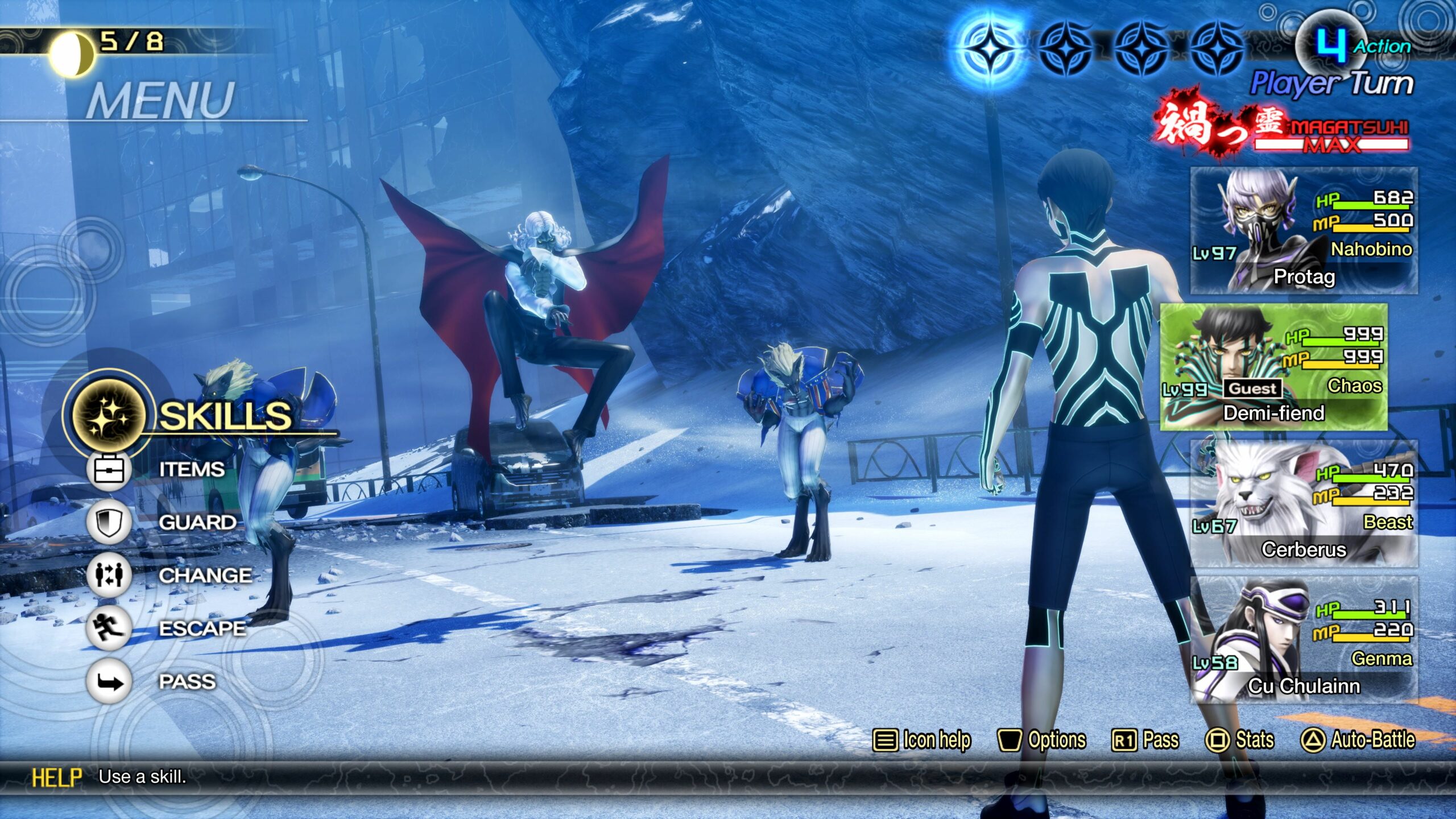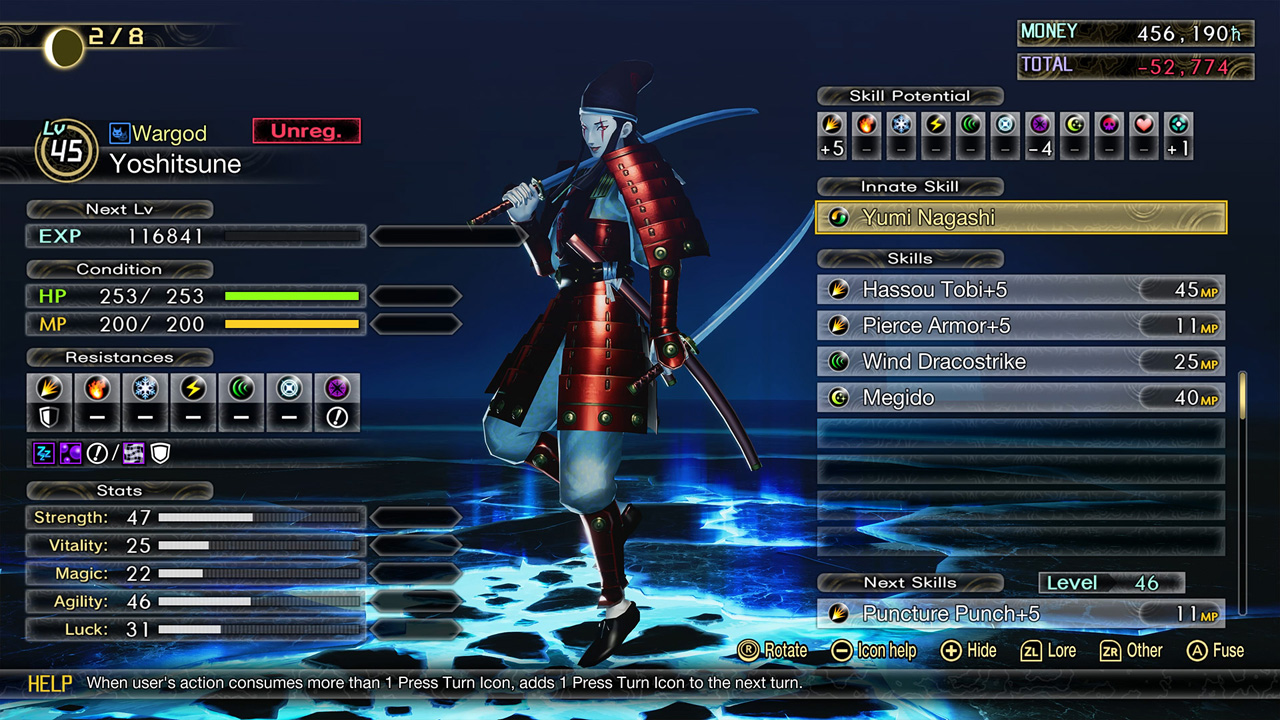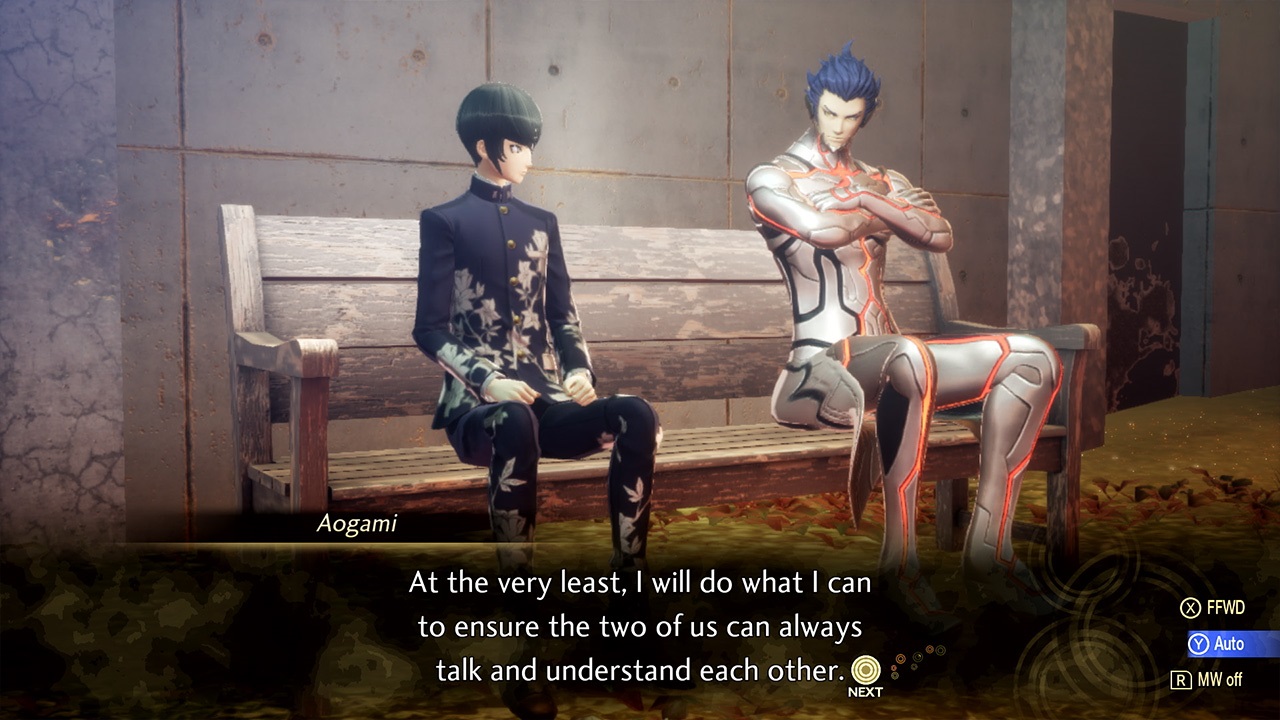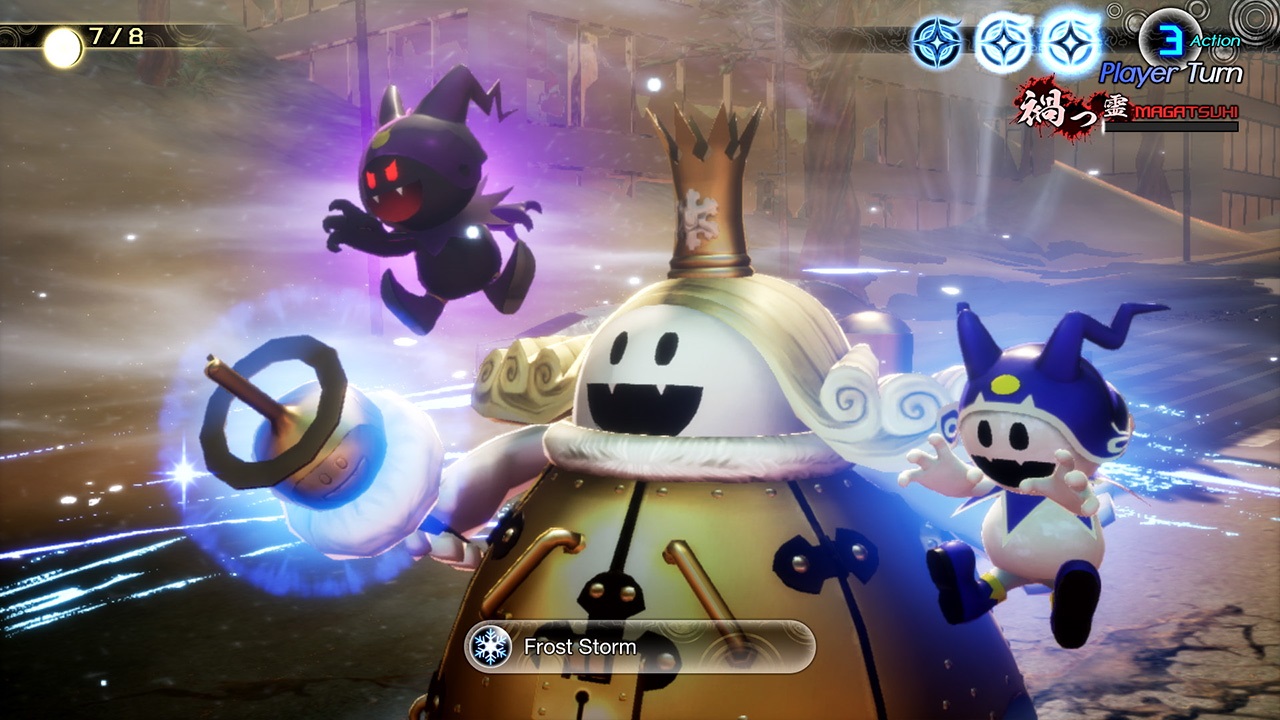Everything old is shin again.
In my review of the original Shin Megami Tensei V back in 2021, I wrote, “…it’s been a long time since I’ve disliked the start of a game as much as Shin Megami Tensei V’s.” And yet, in 2024, I started it again. Why? Two reasons.
First, as much as I hated the first 15 hours of SMTV (and some other elements that persisted throughout), I was still able to recommend the game. Second, because Shin Megami Tensei V: Vengeance not only delivers an entirely new story, but it also corrects the game’s biggest design flaw that sapped the fun out of the original release. Let’s start by looking at the story.
Vengeance begins with the same pitfalls as the original; we meet a few students at a Japanese high school, and we’re given no reason at all to like or care about these people before we’re plunged into an apocalyptic world with the main character who has merged with a demon to be reborn as a Nahobino.
We’re then set loose to explore a vast wasteland called Da’at. In the original, the only incentive we’re given for this is that there’s nothing else to do. Run around, fight demons, recruit demons, push onward. Now, depending on the path you select at the start of Vengeance, we at least get a human companion. At the start, we see a silhouetted character and are warned against taking her with us. If you don’t, you play the original version of the game. If you do, you play the new storyline involving this character and new Qadištu enemies.
I recommend you take this lady regardless of whether you played the original, as the “Vengeance” story does a much better job at being an actual story.
You can then decide if it’s worth another full trip to play the original path. There’s value to that, because there’s so much to explore, find, and collect that your second “completionist” playthrough could be almost as compelling as your first “story” playthrough.
It helps, too, that the world of Da’at is such a unique place to visit. The initial desertscape is certainly overwhelming, but it’s still rather stunning to see, and each new area becomes more compelling to explore. Also, no game I’ve ever played has made mass destruction seem so simultaneously bleak and beautiful.
I’m not going to go into too much detail on the game’s mechanics, as they’re largely the same as before (again, you can grab the details in my original Shin Megami Tensei V review). Basically, it involved engaging in turn-based combat with an assortment of demons and using the “press turn” system to emerge victorious. This involves determining their weaknesses and using the appropriate attacks to exploit them. The more you do so, the more attacks you get. Of course, enemies can exploit the weaknesses of yourself and your demons, too. So, you want to make sure you have the right demons in place and that you’re leveling them up appropriately.
You get the demons by either recruiting them in combat (correctly guessing the right answers to their rather goofy questions, then agreeing to give up money, health, or items) or by fusing them. Some have to be fused, so you want to collect as many demons as possible. You have a limited number of slots for them, so you’ll need to fuse demons to open up new slots. But you don’t want to do this too quickly or the demons won’t acquire their better skills to pass along when fused. There’s much more to consider, but we won’t worry about that right now. Instead, let’s talk about how Vengeance makes this whole process much more enjoyable.
In the original, your progress could only be saved at the Leyline Founts where fusion takes place. There aren’t a lot of these, so you could theoretically go a full hour without the ability to save. Because the demons can one-shot kill your main character, this meant you’d have to constantly backtrack to a Leyline Fount every time you recruited a particularly tasty demon, found a great item, or overcame a troublesome adversary; you either moved backwards or you risked losing any significant progress. The game forced you to play defensively, and that’s not fun. Now, you can save the game whenever you want. About to face a tough battle? Save. Finally recruit a tricky demon? Save. Want to see if you can jump to a hard-to-reach area? Save. The game no longer wastes your time; it keeps you moving forward.
Kind of. Vengeance also introduces Demon Haunts to the Leyline Founts, which are places where you can hang out with the demons you collected and get to know them. Why would you want that when the demons only exist to be sacrificed and fused? I guess the kids just can’t live without their social sims these days.
Oh, and the demons give you additional items and level up faster if you talk to them (glad my real life friends don’t work that way). These visits slow things back down, but not enough to hurt the overall experience.
All of this means you’re less likely to avoid fights while exploring, thereby enticing you to actually play the game while playing the game. And if you’re one of those players who loved grinding through the challenge of the original version, no worries; there are plenty of difficulties to keep everyone happy.
Even with all of these changes, the gameplay loop remains; explore a big area, level up, acquire demons, face a boss, get a narrative dump, repeat. Vengeance does a better job of keeping things interesting along the way, but V still has the least interesting storyline of the half dozen Shin Megami Tensei games I’ve played. That’s fine, because the exploration of the vast wastelands of Da’at, the turn-based combat, and the demon-fusion mechanic are enough to carry players through.
The repetition may turn some away (especially considering the overall length), but repetition is easier to deal with as long as I feel like I’m continually making progress. The quality-of-life enhancements made here allow for that, and that allows players to finally take in all that Shin Megami Tensei V offers without the need for anger management classes.
Review: Shin Megami Tensei V: Vengeance (Nintendo Switch)
Great
Shin Megami Tensei V: Vengeance adds enough new content and fixes enough problems to more than justify this update. It’s a much better experience overall, and is an easy recommendation for JRPG gamers…especially if you lost your way during the original release.

